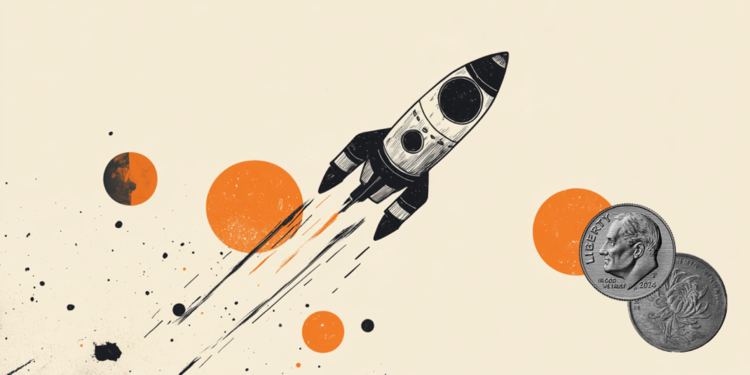Recently I was able to experience a great privilege, granted only for scientific purposes: swim with whales, the giants of the sea. I was in the Azores to make a documentary on the ocean habitat and film my underwater encounters. Unfortunately the ocean was not kind: the wind was strong, the waves were stormy and the days in the water were few. But what I was able to find on land was something even more precious than what I wanted to document beneath the surface of the sea.
On a long afternoon of waiting, cultivating the hope of seeing a window of good weather, I, Giuseppe Bertuccio d’Angelo and his team of Happiness Projectwe spoke with Enrico Villa about CW Azores, a whale watching center of marine biologists researching the welfare of whales on Pico Island. And it is when talking about whales that the name of came into our discussions Anterior. Antero is 80 years old, is a former whale hunter and today uses his experience at sea to spot them. Every day, on a tower along the coast, Anterior he helps Enrico from the ground in spotting cetaceans and we decide to go and see him immediately. When we arrive he welcomes us with kindness, we look at the sea with him, and he calmly begins to tell us his story (which became a video by Progetto Happiness).
His life captivates us, conquers us, we listen to every word to the point of emotion. For the first time I felt close to understanding a relationship, that of man with whales – the largest mammals in the world, entered into the legends of every culture – which until now I could only imagine.
Photo: Happiness Project. Antero’s starry is a video of Progetto Happines which will be visible on You Tube.
The example of Antero, the last whale hunter
Antero is almost 80 years old and he remembers well when, as a young man, it was not possible to ask himself whether or not it was right to hunt whales. To be able to financially support his family in a remote place in the middle of the Atlantic Ocean like the Azores, where resources were limited and whaling traditional since the time of the Portuguese colonizers, every morning Antero defied the fear of entering the sea on precarious boats and fight against the giants of the sea. A tough fight, physical, but above all emotional.
What changed its history was, in 1986, the Moratorium on whaling imposed to allow their survival by theInternational Whaling Commission (IWC), which led to the cessation of commercial uses of the large mammal. With the ban on whale hunting, not only did Anterio transform his work, and he dedicated himself to “sighting” them instead of “killing them”, but above all he was able to open his heart to the real feelings he has always had for these mammals. Today he feels invested with the responsibility of protecting them.
The Azores, where whales are protected (and contribute to the growth of tourism)
Thanks to this ban, the Azores have seen a significant change in their relationship with these magnificent animals. Today, Visitors from all over the world travel to the Azores to go on whale watching tours thanks to a form of sustainable observation tourism, which has also contributed to promoting the conservation of cetaceans and raised public awareness of their ecological importance. The Azores have become a model for the protection of cetaceans, “making them a tourist resource” and for the promotion of marine biodiversity. A true ecological transformation that filled my heart with amazement and hope.
Why is there still hunting in Iceland?
A mostly opposite view of the issue appears to be that held by the Icelandic government. Although whaling here is not considered a traditional activity and is not necessary for survival or particularly linked to the economy of the country, which like the Azores, has experienced a condition of isolation and often resilience, the government appears to be undecided on its position. Currently Whaling is still allowed in Icelandafter a brief summer stop following numerous international protests, and in September several individuals were hunted, of which eleven pregnant females and one breastfeeding, killed with her cub. A total of 148 fin whales were killed last year. Since the international ban in 1986 they have killed 1,800.
There Whaling in Iceland is operated by only one private company licensed by the governmentbut this company operates under the laws and regulations established by the Icelandic authorities which makes the Icelandic government mainly responsible for killing sea giants. Today the ethical, environmental and international implications of these actions are the subject of debate and controversy globally and it is absolutely absurd that one man, one who owns a private company, can still hunt whales (despite over 50% of the Icelandic population being openly against it).
How to act
All together we can do so much: sign petitions online, tourist boycott Iceland (Norway and Japan) or email the Icelandic government to express our opinion regarding this issue and, possibly, influence the choice. Activism works. Let’s show the Icelandic Parliament and the Industrial Affairs Committee that we are against whaling by writing to [email protected]. The email can be written in English but it is better if the subject is in Icelandic: «Umsögn við 99. mál, frumvarp til laga um breytingu á ýmsum lögum vegna banns við hvalveiðum» («Comment on number 99, the drawing to amend various laws regarding the ban on whaling). Since the main goal is to get members to read the comments, it’s always best to write a clear and concise message.
Let’s spend a few minutes of our time trying to contribute to a much-needed transformation in Iceland so that whales can have a future (fin whales, the world’s second largest mammal after the blue whale, are considered globally at risk of extinction). Instead of hunting, we learn to look at these animals as beings to be respected, observed and admired. In this new relationship between man and whale, there is no room for man’s arrogance towards nature. Instead there is a profound sense of wonder and respect for the life that lies beneath the surface of the sea.
And this is the most important message to carry forward. Pprotecting whales, after all, does not just mean saving an endangered species, but to safeguard a bond that unites us with nature and our own humanity. Looking at those imposing creatures, you have the feeling of being small, vulnerable and at the same time part of something bigger. This is the power that nature has, to transform us, educate us and inspire us.
Photo: Nicola Guaita
Photo: Happines Project
Photo: Happines Project
Photo: Happines Project
Source: Vanity Fair
I’m Susan Karen, a professional writer and editor at World Stock Market. I specialize in Entertainment news, writing stories that keep readers informed on all the latest developments in the industry. With over five years of experience in creating engaging content and copywriting for various media outlets, I have grown to become an invaluable asset to any team.







